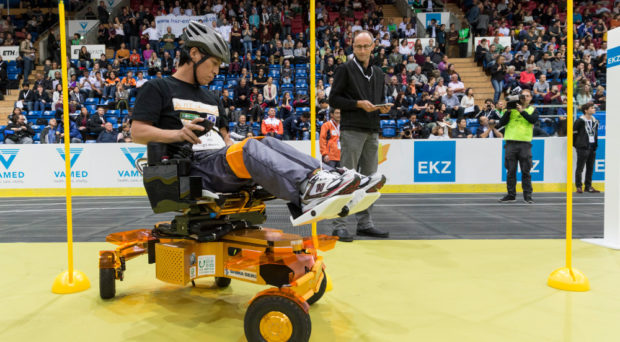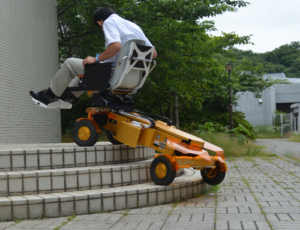
While the Olympics and Paralympics are contests of human abilities and strictly restrict the involvement of devices, the CYBATHLON is a competition in which technologies complement disabilities, symbolizing the future of the relationship between humans and technology.
The CYBATHLON poses to society the question; “to what extent can today’s technology be used as technology for assisting humans?” and the acceleration of practical application of such human-assistive technologies can be expected through the project.
Upon the huge success of the 2016 competition, it was decided that CYBATHLON Series are to be held in each discipline in different places around the world to lead up to the next main competition that will take place 4 years after the first (in May 2020). In the Powered Wheelchair discipline, the fact that Wakayama University’s team, demonstrating Japan’s highly advanced technological abilities, came in fourth place in the 2016 race, led to Japan hosting the CYBATHLON Wheelchair Series.

In the CYBATHLON, people with disabilities compete against each other as pilots. To be competitive it is necessary to develop devices for the pilots that are close to perfect. However, for university research labs, although they can be agile, it is difficult to develop devices with such high levels of perfection when the majority of its members consist of students.
Meanwhile, for companies, it is not easy to develop new devices without economic prospect. Therefore, there is still a long way to go before technologies for areas that will be needed in the future but are currently outside of economic demand, such as human-assistive technologies, will be put to practical use.
In Japan, industry-academia collaboration is emphasized but in reality, it is not so simple because the two sides have different goals. If universities’ research labs become capable of developing devices with high levels of perfection that can compete in the CYBATHLON, the barriers between the two should become lower. Could the CYBATHLON Wheelchair Series to be held in Japan serve as the first step? Many people are waiting to see.
CYBATHLON
If you enjoyed this blog, take a look at related research in some of the supporting journals
BioMedical Engineering Online
Advances in medical robotics and automation for surgery and rehabilitation
Journal of NeuroEngineering and Rehabilitation
Comments